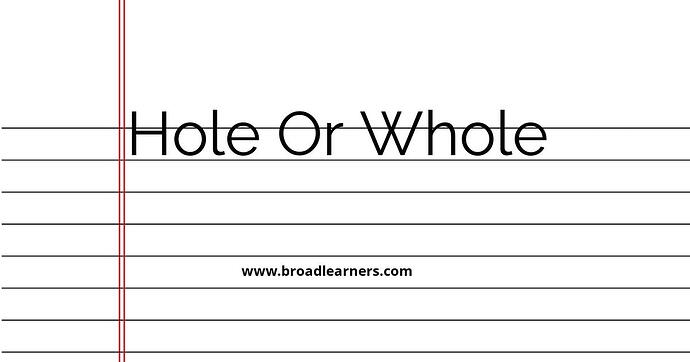'Hole' and 'whole' are commonly confused words in English grammar. Understanding the difference between 'hole' and 'whole' is important to use them correctly in written and spoken English.
'Hole' is a noun that refers to an opening or a cavity in something. It can also be used metaphorically to represent a gap or an empty space.
'Whole' is an adjective that means complete or entire. It refers to something that is not divided or lacking any parts.
Let's take a closer look at the meanings and usage of 'hole' and 'whole'.
| 'Hole' | 'Whole' |
|---|---|
| The word 'hole' is used to refer to an opening or a cavity. | The word 'whole' is used to describe something that is complete or entire. |
|
|
To remember the difference between 'hole' and 'whole', it can be helpful to think of the 'o' in 'hole' representing an opening, while the 'w' in 'whole' represents something complete or entire.
Here are some examples of correct usage:
- There is a hole in my shoe. (referring to a physical opening)
- I ate the whole pizza by myself. (referring to the entire pizza)
- The team worked together to complete the whole project. (referring to the complete project)
Remembering the correct usage of 'hole' and 'whole' will improve your grammar and communication skills.
